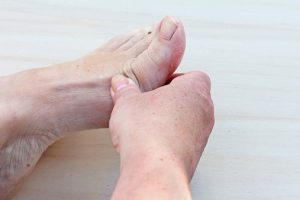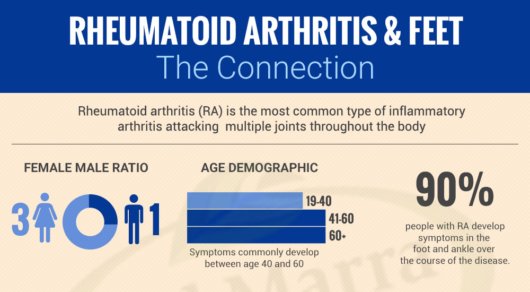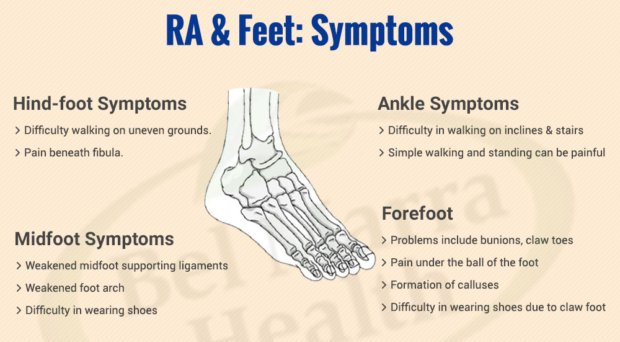 Rheumatoid arthritis is a chronic disease involving the immune system, in which joints undergo inflammation. causing pain and stiffness. People with rheumatoid arthritis generally find difficulty performing simple movements that involve the joints, such as walking, standing up, and sitting down.
Rheumatoid arthritis is a chronic disease involving the immune system, in which joints undergo inflammation. causing pain and stiffness. People with rheumatoid arthritis generally find difficulty performing simple movements that involve the joints, such as walking, standing up, and sitting down.
This condition has also affected individual performance at work or school, prompting the medical field to identify an effective treatment. Having this inflammatory condition affecting the joints may also be responsible for certain emergency visits to the hospital, especially when a person suffers from a decreased ability to operate a motor vehicle or machine. In other cases, visits to the emergency room may be due to extreme pain experienced by a patient with rheumatoid arthritis.

Feet and the immune system implication
Advertisement
Common treatment plans for rheumatoid arthritis include anti-inflammatory drugs, such as aspirin, ibuprofen, and naproxen. It is also possible to prescribe disease-modifying antirheumatic drugs for the treatment of rheumatoid arthritis, although this type of treatment may also increase the risk of developing severe side effects, which may also require emergency medical attention. More recent improvements in treatment include the use of biologics, which are proteins that influence the immune system to slow down the progression of rheumatoid arthritis.
In extreme cases of rheumatoid arthritis—where drug treatment appears to be ineffective—surgery may also be recommended. It is important to understand that this disorder involves the immune system and the joints, and may also decrease the ability of a person to move. Many emergency calls involving the elderly are caused by rheumatoid arthritis increasing slips and falls.
Foot pain—a sign of rheumatoid arthritis
Based on the severity of rheumatoid arthritis and its association with emergency medical treatments caused by accidents, health groups and researchers have looked into specific signs and symptoms that could be detected at an early stage. Using this information, people who are at a higher risk of developing rheumatoid arthritis may be educated on how to maintain their healthy bodies at an earlier age and possibly prevent the development of this immune system-related inflammatory disease. This information may also decrease the incidence of emergency visits to the hospital and ultimately lower the need for aggressive treatment of the disease.
According to a recent medical report, the features of the feet may serve as a reliable indicator for signs of rheumatoid arthritis at its early stages and the condition of an individual’s immune system. For example, the ankle is composed of several joints and generally responsible for the stability of the body while standing upright. Any signs of stiffness, swelling, and pain in the ankle may indicate that this foot area may need emergency treatment in order to prevent further deterioration.

Feet and arthritis—The connection
The report presented the findings of 100 individuals with rheumatoid arthritis who were interviewed during their earlier stages of the disease. The results of the study showed that the earliest symptoms of foot problems involved the ankle, followed by the forefoot. Years after, these individuals also experienced pain and stiffness in the hindfoot and midfoot. The study participants also admitted that they used insoles as primary treatment of the pain they encounter in their feet. The report also showed that aside from early foot problems, these patients also presented higher body weight, so it is possible that the rheumatoid arthritis development was faster due to this specific feature.
This recent medical report provides direct proof that certain foot features could serve as indicators of rheumatoid arthritis.
Related: Rheumatoid arthritis management with nutrition, Mediterranean and anti-inflammatory diets
Foot arthritis pain relief tips
Below are some tips that may help you manage foot pain caused by arthritis. Be sure to check with your doctor before making any changes to your pain relief regimen.
Visit your doctor: The first step in seeking pain relief should always be to see your doctor to obtain a proper diagnosis. Your family doctor can refer you to a podiatrist or rheumatologist, who will check your feet annually to look for signs of arthritis and evaluate if any medications or exercise regimens are working.
Pick the right shoes: Ensure that your shoes have arch support, are wide enough for your feet, and are comfortable enough to minimize any pain you may feel. Toning athletic shoes with rocker bottoms are a good choice for a supportive, comfortable shoe.
Stretch: Stretching your Achilles tendons, along with the tendons in the balls of your feet and toes, can help improve joint mobility and relieve pain.
Get a foot massage: A foot massage that focuses on the balls of your feet and your toes can help relax the muscles in your feet and provide pain relief.
Advertisement
Topical ointments: Ointments that contain capsaicin can help reduce inflammation when applied topically to problem areas. Try using one of these creams or ointments on your feet for arthritis pain relief.
Related: Rheumatoid arthritis and skin problems: Causes and treatment
Infographic: Rheumatoid Arthritis and Feet – The Connection
